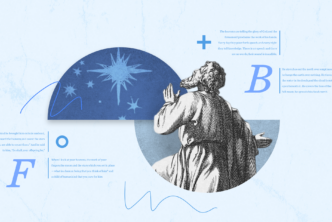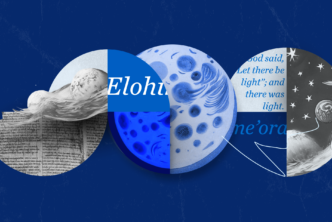I was kindly asked to give a brief outline of my research method and ideas thereon; here are some unrefined thoughts.
Learning how to research requires intentionally approaching your research over the course of many years and being reflective about the outcomes of your approach and style, whether good results are obtained or not so much, and how changes big and small can fine-tune those results. A willingness to adapt your method and being cool-eyed and thoughtful about it opens up the possibility of genuine advances in research precision, speed, and thereby effectiveness. Each field requires its own research methodologies: philosophy is not theology is not history, and what is apt for each differs according to the rules and requirements ingredient to the discipline. Yet I have found, talking to other scholars over the years, that everyone has their own peculiarities. So while there are some “non-negotiables” common to everybody in a certain field, it is also these peculiarities, as tailored to and fitting one’s own person, that distinguish fair and good research methodology for an individual scholar. While my academic training is in historical studies (post-Reformation and medieval), my area is systematics (specifically the Trinity), and I claim I suppose to be a theologian somewhat historically attuned. Thus, the following are some thoughts on research methods that fit my field and fit myself. These are things I have found useful to think about for me and my work and should be adapted to whatever suits you and yours.
Distinguishing primary and secondary sources
Indexing your sources correctly is the most basic requirement for good research. The main distinction is between primary and secondary sources. But I have noticed over the years that this distinction is often fouled up by people, even by some scholars. A quick glance at the back of many books informs you that primary sources are something like those that are old(ish?), and secondary are more contemporary to our own time. Now perhaps this is just editorial convention and so belongs to those niceties, but I think it may be indicative of broad and uncritical thinking on this issue. More properly, the specifying difference between primary and secondary literature is not age or something along that line; it is whether a text is immediate to your topic, or mediate. A primary source bears on your area under question directly: it speaks precisely what is the point at hand; it pertains absent translation or adjudication (via a different method, e.g.—more on that in a moment) to your field under which your topic is subsumed. On a different and secondary level are secondary sources. A secondary source is a second step away and in fact itself proximate to some primary source or perhaps proximate to an alternate topic (e.g., the “historical context” of the author whose thought is under question) that itself is immediate to your actual question in a certain way. This implies that this source must be translated in some way to have bearing on your topic, i.e., it is useful only as through whatever is in fact immediately proximate to your actual topic, and thus the secondary source is mediated accordingly. So if I want to know what Aristotle thinks on some topic, my primary sources are the corpus of works Aristotle wrote. If I want to know what Thomas says on what Aristotle thinks, my primary sources are the works of Aristotle (actually: the text Thomas was reading) and those of Thomas. My secondary sources may be, for the latter topic, the various Muslim and Jewish commentators Thomas is reading; Thomas’s cultural and especially ecclesial context; and so on. The latter sort is of import only as through the prior sort: they are mediated, and you must mediate them properly else errors accrue. Clearly, then, some sources can be primary for a certain topic while secondary for another: the issue is always one of proximity. (This quickly gets a bit snarled, but the point here should be clear enough.)
Locating this difference—whether a source is immediate or not to your topic—is apt for two causes, at which I’ve hinted already: (1) this difference helps you navigate what is still an ofttimes unclear distinction between whether a source is actually primary or not; the line is fuzzy. I suppose it is not too helpful to get jangled up about precise designations, so we can leave that to one side, but it is helpful to navigate how proximate a work is upon your topic and orient yourself toward whatever source it be by means of that question. Technically, e.g., a primary source is only the original or a critical text, and certainly not a translation. Yet it is probable most scholars allow some stretch to this rule and they are right to do so—as long as this is coordinated correctly. Certainly, if you are attentive about it you attain the sensibility that there are within this basic division many subcategories of different sorts; so we are dealing with and ought to think of sources in terms of “more or less” primary or secondary, according to a source’s immediacy to a topic. Notably, this alerts us to our need, based upon proximity to our topic under question, to use and evaluate sources more or less proximate each in a different sort of way. And that brings us to (2), that this distinction informs us that we might be switching disciplines and therefore methods here, needing to translate our results in a different modality. There are, after all, secondary sources, and then there are secondary sources: some try to articulate what Thomas thought, for example, and some are works about the “historical context” of what Thomas thought. These are not the same nor ought they to be traversed the same way.
An instance: it is fashionable to suggest that understanding a text requires extensive engagement with the cultural context, both macro and micro, of its author. While I query the premises behind this and whether this is, in fact, requisite strictly speaking, nonetheless the historical context of some text informs me of potentially useful information. But it is only useful information when it has been registered and indexed toward my topic in a mode that reveals its pertinence; for not everything is of use, and not everything is of use in the same sort of way. I may be perfectly pleased to discover the historical milieu or the political context I am told is ineluctably affixed to and bearing upon some text, and perhaps this is all right; but if I do not know how to treat that information, then I have not garnered anything of research value. This becomes particularly sticky for those who suffer the lack of a healthy sense of where (and particularly, where not) their expertise lies. Switching methods between e.g., a historical or theological or biblical field calls for careful arbitration and no small skill; not all are parties equal in their say upon your topic, which is why treating them as they ought to be treated is required—and, prior to that, knowing what they are (i.e., are they primary or secondary, and what sort of secondary if the latter). And perhaps it is not all the fault of the individual scholar who is met with these highflying requirements; scholarship seems to be under the woeful beguilement that cross-discipline education, experience, yea expertise in all things is the necessary if not fully sufficient precondition for good research in a localized field. I am rather doubtful of that premise or even of its legitimate fulfillment by most anyone. But if it should be the case that, yes, in fact, you must navigate these swamps of secondary literature across all disciplines and hold the world in a single hand, with a pen in the other writing with no small fury, you had better at least do it in a thoughtful mode. Being aware of the potential for mistake is a sound safeguard; knowing what a source is, which determinates how it’s used, renders one safer still.
Approaching a topic
Your approach to a topic is going to differ significantly depending on your familiarity with it already. Ideally, you are not approaching a topic you are unfamiliar with; getting a grip on your field takes time, however. When you begin to have some mild expertise, at least on the broad peculiarities that attend the landscape, your research changes: you are not reading secondary literature (you already have), you are dealing with primary sources far more quickly (if not first thing), and pulling from prior notes and/or research projects. Starting out studying the Trinity (my area of research), it took a long time to be able to say I’ve read most of the contemporary secondary scholarship that’s worth reading; I’m now working through the formidable mass of sources spread throughout the history of the church, as well as Jewish and Arabic sources. So my research method has changed there.
But if I am approaching a topic I don’t know much on, I generally follow a fourfold pattern: secondary, primary, secondary, primary literature. I have been told by many scholars that prefacing primary lit with secondary lit is a bad modus operandi: one should approach your primary lit untrammeled by secondary lit interpretations, because to do the contrary gives you bias, which we don’t like, and so on. While there is a sensibility in that advice which is no doubt correct, I have always felt it is useful for me to begin with secondary literature—perhaps because I am a bit slow on the uptake.
So when approaching a new topic, I usually skim a load of secondary literature to get a grip on the broad features, important questions, “touchy” issues to have in my mind. I’ll, say, read a dozen dissertations, fast, not stopping really for notes. I just want to know what is going on in this new world I am encountering. I will then likewise give a fairly shallow read of all my primary lit, taking brief notes. I am forming my own opinions, beginning to try to redeem myself in the eyes of those who think I should start here first; I am watching for things that confirm/overturn things I just saw in the secondary lit. Then I will do a slower read with notes of all the secondary lit, then lay it off. My slowest read, and by far most time spent, will be now the primary sources. These are my friends; scholarship deals only in this commodity, and primary sources are only what I care about.
“Reading” is based on merit
So when you are researching a topic, it is the primary sources that are ineluctably necessary; all your secondary lit, technically, is more or less negotiable. And being able to navigate the swath of secondary lit—a surprisingly fair amount of which is, in all frankness, not worthy—requires the skill of evaluating the strength and significance of all the secondary sources under question. What do you actually spend your time on, if the bulk of your time is already to be spent with the primary lit? Discerning this is a skill garnered by experience. Over the years I have developed a fairly attuned feel for what I want to read and what I don’t, and I’m rather obnoxious about it—there are many things to look for. Publishers are often a broad guide, though not perfectly reliable; there are plenty of OUP books I’ve read (and, woefully, bought) that were, shall we say, “not my cup of tea”; there are also plenty of books published by the no-names, which are incredibly good. So publishers are only a fair indicator. Obviously, authors are as well: if there is “that” certain scholar, you read everything by him, and everything he recommends highly. I also look for what texts are repeatedly mentioned or interacted with in other secondary lit; that’s why dissertations are helpful and generally my first stop. The way most are written today usually includes the obligatory lit review as the preface or opening chapter. A list of common sources generates your initial bibliography. I will then order those and repeat. (This is also why I usually am reading secondary lit in two rounds, as noted above: it takes time for books to get to inter-library loan if my library doesn’t have them!)
But here’s a secret: Even with these broad guidelines, there is still plenty to wade through that is not useful. Thus my inviolable rule: I treat books only as they deserve. There is no grace in scholarship, only merit. If this book is junk, I spend only the time required to discover that, check that I’m actually correct in my judgment and then move on with mild disgust. I am not there to read every word, every page, every chapter; I’m there to research.
If a book has one good chap, and the rest is junk, I read that one chap and ignore the rest. How do you discover this? In general, read the first chap or preface—does this justify continuing? If no, give it a brief skim to confirm—you could be wrong. If yes, read the conclusion: Is it good? Dive in deeper. Etc. etc. Attend to the opening and closing paragraphs of chapters to also discover this. Some books I spend twenty minutes with (these you sigh at), some books I spend two months with (these are the books you try to review), some I expect I will spend a lifetime with (these are those you buy). I treat books how they ought to be treated and nothing more. Over years of research, you will become more ruthless with this, as the list of worthless books continues indefinitely to increase, while the list of those that are worth your time becomes smaller and smaller.
Notes and the taking of them
Note-taking is a trick; I know of plenty of methods myself and ones that friends use which they tell me are helpful. I can only speak for myself. I have tried having multiple files and/or “tags” for different topics; I have tried (purchased) notetaking systems. Inevitably though I am scattering my thoughts in a disorganized fashion, and then when I want to return to them I am unable to lay hands upon them. I have settled on one very large document (whose size requires I begin a fresh one every so often). This contains everything I think and write about everything I think and read about.
Because I do theology and so am primarily concerned about ideas (I’m a concepts, not a facts guy), I usually find it is useful to either wright my actual thoughts as stimulated by the author, with the appropriate attribution, or actually type up in full what the author said. My note-taking resembles the commonplaces method, of sorts; I do find that if it is worth taking down, it is generally worth taking a lot down—and so I find myself typing up a large paragraph or even a couple pages. (Hot tip: They have handheld scanners that allow you to do this quickly, which I have used and am happy with.) When I am writing, I skim through my very large document to the places of note and work off of them. I wish I could say I only ever make one pass through a book and then do not return to it; generally, if the book is worth extensive time, I will try to take down as much as possible, but I expect I will return to it over the years (again, a book you buy). But overall my goal is to get the broad ideas in a place where I can work with them; this is very useful to me because I find I am not good at coming up with things as much as responding to them.
Summary
The basic point here though is this: What you need is a system that allows you to take notes easily (one that is not clunky); allows you to use your notes for drafting essays (one that allows you to find and search easily); and one that protects you from plagiarism, both now and for years down the road. For the latter, in addition to the standard “quotation marks” and footnotes, I also use red font for typing up all my quotations, in case “quotation marks” get lost somewhere down the road.
R. M. Hurd is an orthodox catholic theologian who specializes in Trinity; he also translates Early Modern Latin sources. He has published a number of articles and edited two books, in addition to the translation of Franciscus Junius’s Theses on Scripture (forthcoming from Lexham Press).
This article, “On Research Method,” was first featured on the Logos Academic Blog. Sign up here to stay updated on future articles and job postings.
*Note: An earlier version of this article did not include RM Hurd’s bio, which has now been added.
]]>




